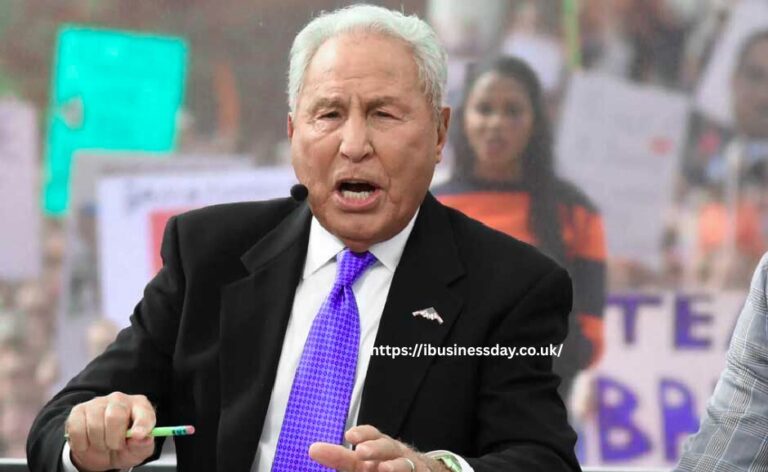James Kambewa The Man, The Mystery, The Legacy
James Kambewa is a name that has intrigued many, particularly in Malawi and across Africa, due to his bold claims and the mystery that surrounds his identity. Known in the public sphere for declaring himself the self-proclaimed king of Malawi, James Kambewa story is one of resilience, ambition, controversy, and public scrutiny.
Quick Bio Box James Kambewa
| Name | James Kambewa |
|---|---|
| Nationality | Malawian |
| Known For | Claiming royal lineage in Malawi |
| Public Recognition | 2009 onwards |
| Occupation | Unknown / Self-styled monarch |
| Media Highlights | Interviews with local media outlets |
| Controversy | Dispute over paternity and royal claims |
Who Is James Kambewa?
James Kambewa gained widespread attention around 2009 when he publicly claimed to be the biological father of the late Michael Jackson’s alleged Malawian son, Prince Michael II (also known as Blanket). Though this claim was met with skepticism and outright denials, especially from the Jackson family, it launched Kambewa into the spotlight.
However, what truly solidified his media presence was his audacious claim of being the rightful heir to the Malawian throne—a monarchy that doesn’t formally exist in the conventional sense but holds cultural and traditional significance in certain communities.
Claim to Royalty
Kambewa’s assertions were centered around his alleged royal bloodline. According to him, he is the descendant of a royal family within Malawi’s traditional leadership systems. In Malawi, traditional authorities and chiefs still wield considerable cultural and communal influence, despite the country operating as a republic with no constitutional monarchy.
While his claims lacked formal legal recognition from the Malawian government or traditional councils, they did spark conversation both locally and internationally about Malawi’s traditional governance systems and the legitimacy of self-styled monarchs.
Media Appearances and Public Interest
James Kambewa has made several appearances on both local and international media platforms. His interviews often blend personal anecdotes, bold assertions, and appeals for recognition. While many have dismissed his statements as eccentric or fabricated, others have expressed curiosity about the possibility of a hidden royal lineage and the social dynamics at play in Malawian communities.
Some outlets treated his story as a human-interest piece—highlighting the challenges of identity, poverty, and marginalization in modern African society. Kambewa’s story resonated with many Malawians who saw in him a reflection of their own struggles and aspirations for a better life, dignity, and societal recognition.
Controversies and Skepticism
The biggest controversy surrounding James Kambewa was undoubtedly his claim to be the father of Michael Jackson’s child. The claim was made shortly after Jackson’s death, which many critics believed was a publicity stunt rather than a legitimate declaration. Without any DNA evidence or credible connection to the Jackson family, the story eventually lost traction.
Another controversial point was his assertion of kingship. In a republic like Malawi, the government does not recognize royal titles beyond traditional chiefdoms. Kambewa’s claims were thus seen by some as undermining legitimate traditional authorities who have been installed according to local customs and laws.
Despite this, Kambewa stood firm on his claims, stating that he would continue to pursue recognition and represent his “people.”
The Social Dimension Why James Kambewa Resonates with the People
To understand the significance of James Kambewa’s narrative, it’s essential to look beyond the claims and into the context of African identity and post-colonial nationhood. Many African nations, Malawi included, have complex relationships with traditional structures. Even after adopting Western-style governments, traditional leaders remain powerful voices in communities.
Kambewa’s story taps into:
- The yearning for identity – Many people in Africa struggle with the erasure of traditional roots and cultures. Kambewa’s attempt to revive a sense of royal lineage touches on this deep need for cultural belonging.
- Class and marginalization – Coming from a humble background, his journey reflects the desire among many disenfranchised individuals to be seen, heard, and valued.
- Media exploitation vs. empowerment – His fame, though controversial, showcases how modern media can both exploit and empower marginalized voices.
Legacy and Public Perception
While James Kambewa may not hold any formal title or recognized position, his story continues to be a point of interest in conversations around identity, legitimacy, and social dynamics in Africa.
His public presence has diminished in recent years, but the questions he raised remain relevant:
- Who defines royalty in a modern African society?
- What happens to those who fall between the cracks of traditional and modern systems?
- Can individuals redefine their identities in the face of systemic denial?
What We Can Learn from James Kambewa
James Kambewa’s story is not just about a man claiming to be a king. It is a complex tale about visibility, power, and recognition in a society where millions struggle to assert their identity in the face of poverty and social stratification.
While his claims may be disputed, his desire to be acknowledged is universal.
Here are some key takeaways:
- Identity is powerful. Even when unsupported by facts, a person’s belief in their identity can drive them to great lengths.
- The media plays a crucial role. It can amplify unheard voices but also distort them. The responsibility lies with both storytellers and the audience.
- Traditional systems still matter. In many African societies, traditional leadership holds sway. Understanding this cultural dynamic is essential to grasp the nuances of stories like Kambewa’s.
- Every voice counts. Regardless of status or legitimacy, people like Kambewa remind us that everyone has a story worth telling.
Conclusion
James Kambewa remains a figure of fascination, mystery, and discussion in Malawi and beyond. While many of his claims remain unproven or dismissed, his impact lies in the conversations he sparked about identity, recognition, and cultural legacy in Africa. He may not be recognized as a king in any official capacity, but in the realm of public discourse and the court of popular imagination, James Kambewa has certainly made his mark.







